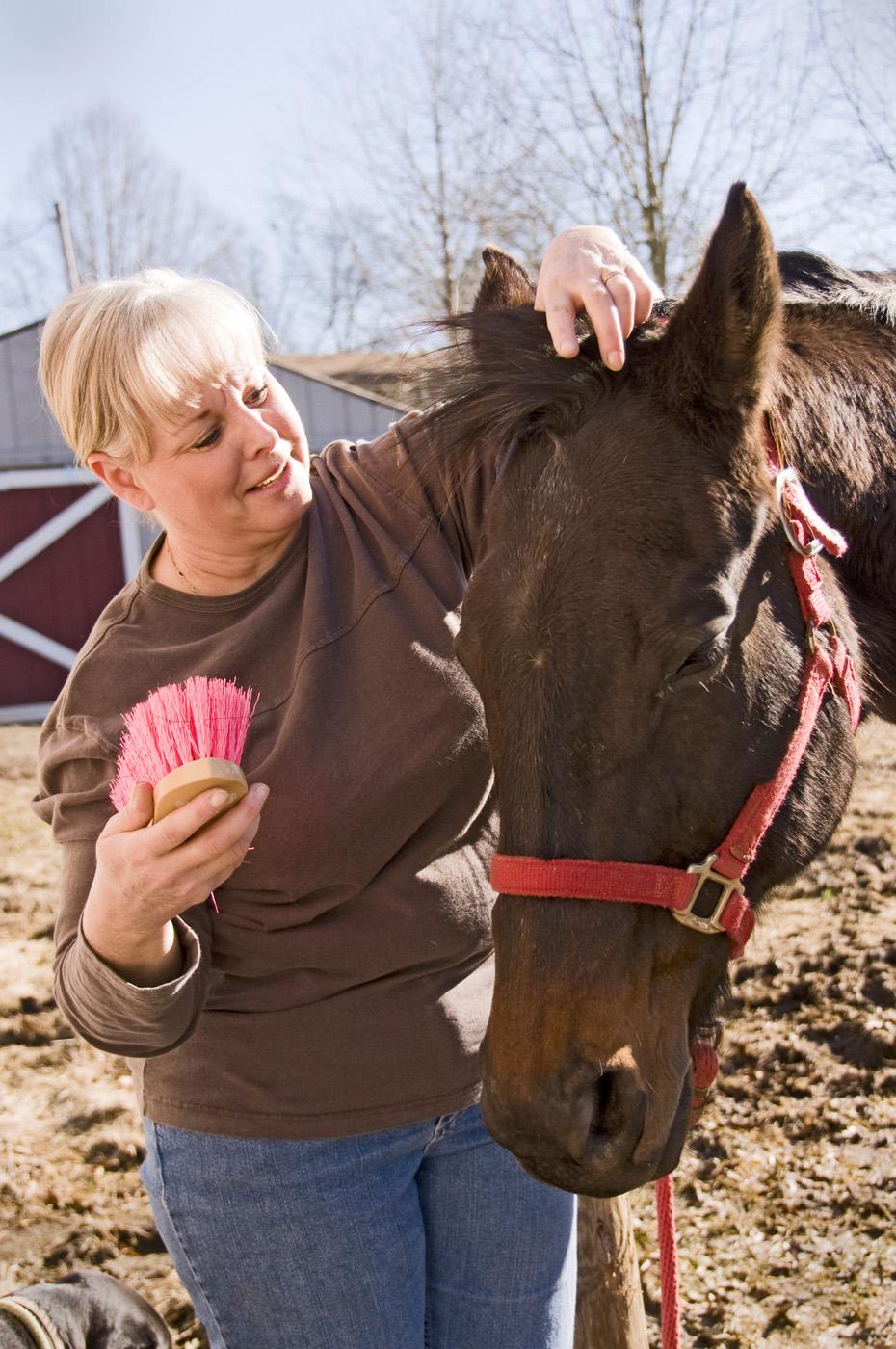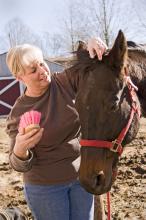Information Possibly Outdated
The information presented on this page was originally released on January 8, 2009. It may not be outdated, but please search our site for more current information. If you plan to quote or reference this information in a publication, please check with the Extension specialist or author before proceeding.
Health-care plan helps horses age gracefully
By Karen Templeton
MSU Ag Communications
MISSISSIPPI STATE -- Gray hair, stiff joints, poor teeth and weight changes are not just signs of aging in humans; they afflict horses as well.
Molly Nicodemus, an associate professor of animal and dairy sciences at Mississippi State University, said horses often display noticeable signs of aging. Although they vary from horse to horse, these indicators can appear as early as 15 years of age.
Nicodemus said owners may notice graying hair, loss of muscle tone and stiffness in their horses.
“There also may be major changes in weight that can be quite alarming,” she said. “The drastic change in weight or the loss of muscle tone makes most owners fearful that something is really wrong.”
The solution can be quite simple in many cases.
“A change in diet can dramatically improve an aging horse's health. Simply switching to a healthier feed can make a tremendous impact,” she said.
As horses age, so do their nutritional requirements. Intestinal tracts may not function efficiently in older horses, making it more difficult for them to digest food to process into energy. Unhealthy or missing teeth can also contribute to changes in a horse's health.
Standard feeds can be high in sugar and starch, both of which are unhealthy for older horses. Still, owners may hesitate to upgrade horse feed because of higher costs.
“Many horse owners cut corners by purchasing the cheaper feed, but they are really doing their animals a disservice,” Nicodemus said. “A small investment in better quality feed can save money down the road. Horses with nutrition deficits require more veterinary care and could develop more significant health problems.”
Often, larger portions of standard feed must be given to aging horses for them to get all of the necessary nutrients.
“With the senior and higher quality feeds, the essential nutrients are provided in each portion, so in most cases, owners don't have to provide as much of it,” Nicodemus said.
Nicodemus has seen firsthand the benefits of changing a horse's diet.
“I've had more than a few experiences with horses that had always been easy keepers, in good shape, with beautiful haircoats,” she said. “Then, all of a sudden, they lose or gain a lot of weight, they become slightly feeble, and there is a loss of muscling in their back and hindquarters.”
Nicodemus said changing to a senior feed or a feed higher in nutrients can get a horse back on track.
“It is almost like giving your horse a few years of its life back, and it is all due to doing something very easy – upgrading its feed,” she said.
Owners may hesitate to exercise their senior horses because they are concerned about overworking them. But actually, exercise can be good for older horses.
“Exercise is great because it gets them out and moving. Owners should spend more time with their geriatric horses, rather than leaving them as pasture ornaments,” Nicodemus said. “One-on-one interaction allows owners the opportunity to notice any changes in their horse's behavior and performance.”
To stay updated on how to care for geriatric horses, Nicodemus urged owners to maintain regular veterinary care. Also, take advantage of available resources from county Extension offices and equine organizations, such as the Mississippi Quarter Horse Association.
Beth Campton, an MQHA representative, said the association recognizes the need to provide up-to-date resources to those in the horse community.
“We provide free seminars on equine care at the Dixie National Quarter Horse Convention,” she said. “The seminars cover nutrition and exercise for horses, including senior horses. We also provide links on our Web site to timely information for horse owners.”
Nicodemus said paying attention and being proactive in caring for horses can help them age gracefully.
“A little extra work early on can go a long way. We never want to see owners give up on their horses,” she said. “Owning a horse requires a certain kind of commitment from the very beginning. Being receptive to horses' needs can help keep them healthy and comfortable throughout their lives.”
Contact: Dr. Molly Nicodemus (662) 325-9271




